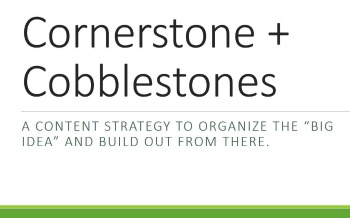The other day I overshot my friend’s stall and stopped to purchase water from another vendor lining Half Street near the entrance to Nationals Park. As I handed over a $5 bill and waited for change, he asked if I was going to give $1 tip to his “cashier” inside the food stall.
Ummm…. NO.
His chutzpah aside, this was bad business. Instead of a routine sale that might have turned me into a return customer, he pretty much guaranteed that everyone I know will see him and keep on walking.
Not every transaction is a relationship.
I’m seeing companies make this mistake more and more. Buy a pair of socks, and the big-box store wants you to fill out a survey. Get your car serviced, and the sales rep asks you to fill out a customer survey—but only if you really, really liked the service. Buy batteries, vitamins, or a book online, and the store asks you to rate the product. Click an article link, and there’s a pop-up asking you to rate the Web site.
Annoying, isn’t it?
We’re awash in tip jars, ratings requests, and customer surveys.
The problem isn’t the tip jar, the ratings request, or the customer survey. They’re tools, yardsticks, ways to assess gaps and measure satisfaction. The problem is that they’re being deployed in a way that gives lip service to customers while treating people as transactions and data points.
No one cares about your customer survey if it is about you. Earn your customers with great products, terrific service, and a word-of-mouth-worthy experience. Then, maybe, you can ask them for a favor in return.
Photo by Stacey Huggins (Flickr).



